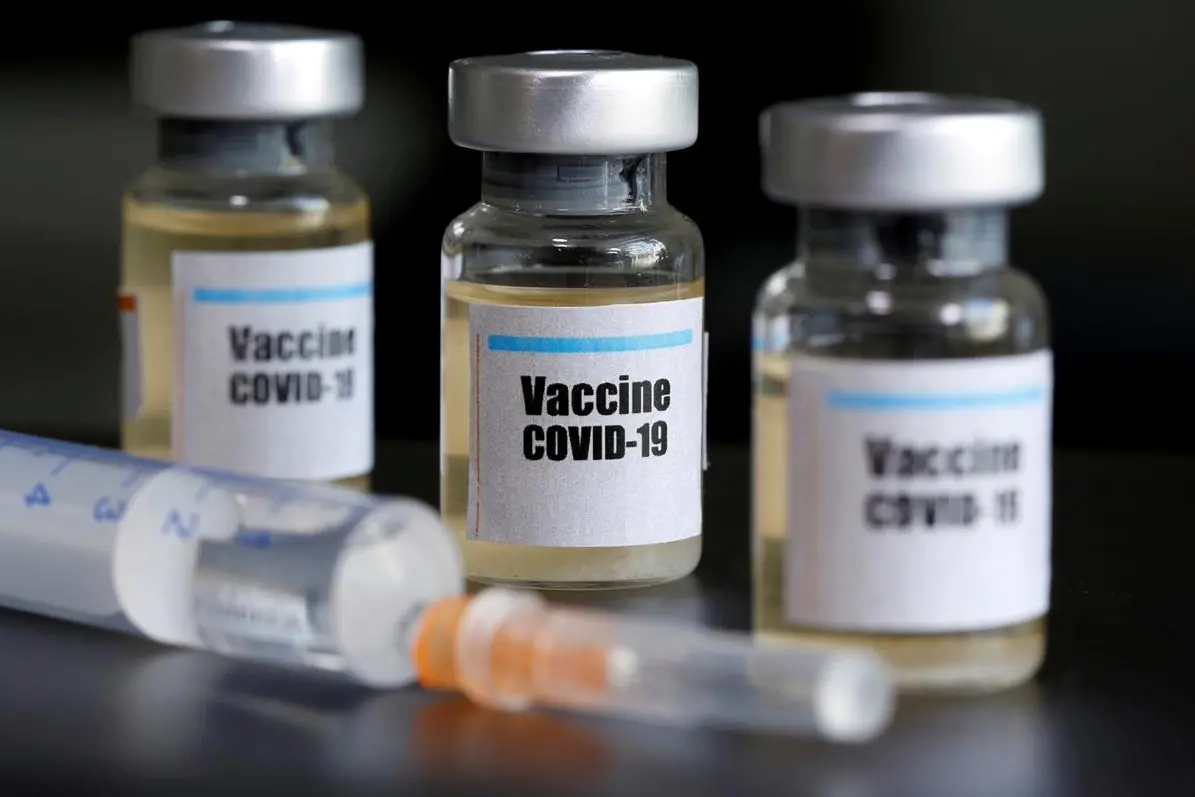PHOTO
Four European nations — Germany, France, Italy and the Netherlands — this month signed a deal with Anglo-Swedish pharmaceutical giant AstraZeneca that guarantees them a supply of up to 400 million doses of a vaccine against coronavirus, should the company develop one.
Meanwhile, Paul Hudson, the CEO of French drug maker Sanofi, last month pledged that, should his company be successful in bringing a vaccine against the deadly virus to the market, it would first be given to the US, even before France. There have been numerous similar attempts by the leaders of various developed nations to corner supplies of the promised inoculations for their own citizens, in clear detriment to the rest of the world, especially poor countries and the poor citizens of middle and even high-income nations.
Access to medicines and health care is one of the key barometers for measuring the rapidly growing inequality across the world today. Indeed, health is the third of the UN’s 17 Sustainable Development Goals, just after poverty and hunger. That indicates the severity of the problem across the world. According to the World Health Organization, at least half of the world’s population lacks access to even basic health care. This leads to millions of easily preventable deaths, notably of infants, children and women, especially during childbirth.
Equalizing access to health care has long been one of the biggest challenges for all governments, political leaders and international organizations. At the core of the debate surrounding access to medicines is the issue of cost. Currently, the biggest pharmaceutical companies in the world all belong to the developed nations and they enjoy a certain monopoly in their home markets, allowing them to charge high prices. In recent years, they have lobbied hard and proactively resisted any efforts to cut prices, even in the face of health care becoming unaffordable to many citizens of those countries, as well as mounting social security deficits becoming the main headache of finance ministers in many European countries.
High prices and a protected market where there is no real competition from the cheaper drugs, notably generics, lead the Big Pharma companies to seek the rollover of patents with only minor tweaks that don’t deserve any patent protection. Notwithstanding their ever-increasing profits, Big Pharma firms have always defended their love for patents by saying that they invest billions of dollars in their research and development and that they need patent protection to be sure to reap the benefits of drug discovery.
While this may have been true at some point, Big Pharma’s ballooning profits over the past two decades have not just robbed them of their principal argument over high prices, but also led to a serious global debate over the responsibility of the biggest companies for the sharp rise in unequal access to health care. The blame for millions of preventable deaths in poor countries due to a lack of basic medicines has been laid primarily at the door of the drug manufacturers.
The debate resurfaced again when the coronavirus pandemic began late last year. Health care experts have been warning that the pandemic, which has managed to bring even the most developed nations to their knees, would cause havoc in vast parts of the developing world. This point was highlighted at a global meeting organized by the UK recently, when leaders pledged $2 billion to fund the development of a vaccine for the coronavirus, but with a clear precondition that the drug would be fairly distributed all over the world.
During the summit, it was repeatedly emphasized that, while the race to develop a vaccine was a crucial one, a bigger challenge lay in making sure that the vaccine will be distributed globally to stamp out the pandemic as quickly as possible and avoid a humanitarian disaster where rich countries restart their economies while people in poorer countries continue to die.
At the virtual meeting hosted by UK Prime Minister Boris Johnson, a funding mechanism was unveiled whereby rich countries would guarantee the purchase of drugs to allow poorer countries to get access to those medicines at an affordable rate. Though this mechanism has been in place for a few years and had led to the creation of a market for a pneumococcal vaccine for lower-income nations, the challenge of access to health care has not really been addressed in any significant manner. The gap in inequality in health care provision only increased up to the outbreak of the pandemic.
The situation has undoubtedly become far worse since, as the global economy is set to shrink by nearly 6 percent. While the rich countries have got their reserves to fall back on, the poor and middle-income countries are likely to be entirely ruined by the economic shock the virus has delivered to the world. In such a situation, it becomes even more crucial for the developed world to ensure that the Big Pharma companies let go of their penchant for fat profits and that drugs, not just for coronavirus but also many other communicable and lifestyle diseases, are provided to the needy in order to avoid tens of millions of deaths.
- Ranvir S. Nayar is the editor of Media India Group, a global platform based in Europe and India that encompasses publishing, communication and consultation services.
Copyright: Arab News © 2020 All rights reserved. Provided by SyndiGate Media Inc. (Syndigate.info).





















